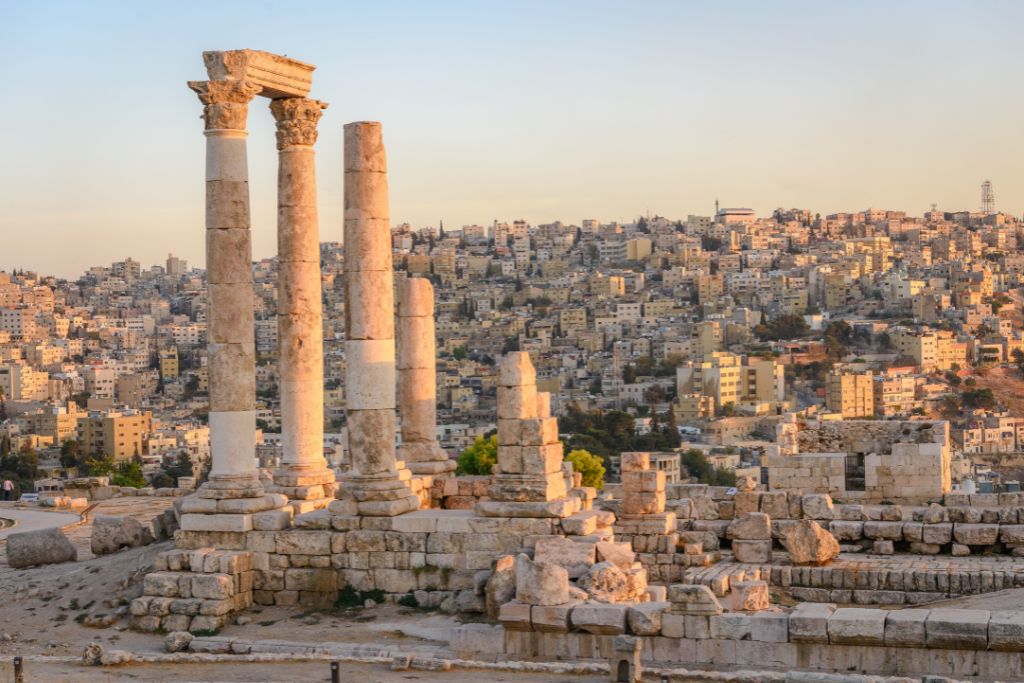Jordan, like other developing countries, is facing serious climate change-related challenges. To address them, the country has developed an end-to-end digital infrastructure to monitor and support the process of global greenhouse gas (GHG) emission reduction based on the recommendations of Article 6 of the Paris Agreement. As the first developing nation to create and test this digital infrastructure, Jordan is now a leading example to other countries. But what exactly does its transition to a low-carbon economy entail?
—
Reducing greenhouse gas emissions is becoming more urgent as the global effects of climate change worsen rapidly.
Carbon markets are considered critical components in the fight against climate change. They assist nations in mobilising resources and lowering the costs of implementing their Nationally Determined Contributions (NDCs) – climate action plans to cut emissions and adapt to climate impacts that signatories of the Paris Agreement are required to submit – allowing countries and businesses to seamlessly transition to a low-carbon economy.
Tradings in carbon credits are projected to cut the costs related to implementing NDCs by more than half – with savings up to US$250 billion by 2030.
How Jordan Developed Its First Digital Infrastructures
According to the World Bank, Jordan is the first developing country in the world to have built digital infrastructures that include monitoring, reporting, and verification (MRV) systems that link greenhouse gas emissions and emission reduction data to national or international registries. The MRV and GHG systems will monitor emissions across several sectors, including energy, transportation, and agriculture. The MRV system now includes 22 ministries and agencies.
“Jordan is a pioneer in the climate space” – said Harikumar Gadde, a senior climate change specialist at the World Bank.
The country is battling a series of extremely severe climate challenges, such as rising temperatures, lack of precipitation, increased droughts, and water shortages. Moreover, Jordan is still heavily reliant on fossil fuel imports, has limited natural resources, and has an extremely limited water supply.
To address these climate challenges, in 2019 the Asian nation enacted a climate change bylaw to establish a climate change institutional and regulatory framework, developing its first MRV system to track emissions in sectors such as energy, transportation, and agriculture, calculate emissions and reductions, and link the results to its NDC. The system assists in tracking and reporting the nation’s progress in reducing climate change impacts across all sectors, including transportation, energy, and agriculture.
The MRV system has three key functions:
- Track GHG emissions to national GHG inventory.
- Measur the GHG emissions reduction from implemented climate change mitigation projects.
- Record financial and technical support.
The system works on four levels – project or program, ministries or agencies, sectoral, and national levels.
“The digital revolution significantly contributes to climate action and is an integral part of addressing environmental challenges” – said Celina Varouqa, a Jordanian computer and technology expert in an interview with The Jordan Times. “The project combines the environmental and digital sectors, which the Kingdom has historically taken meaningful commitments in.” – she added.
Jordan contributes only 0.04% of total global CO2 emissions, far less than other developing nations such as Brazil (0.96%), Nigeria (0.23%), Kuwait (0.17%), Turkey (0.64%), Saudi Arabia (0.96%), and Chile (0.17% ). Nonetheless, the Kingdom is working on a long-term, low-carbon emissions strategic plan to achieve sustainable low-carbon economic growth by implementing a 10-year National Energy Sector Strategy to cut carbon emissions by 10% by 2030 and reduce its reliance on fossil fuel imports. Indeed, Jordan generates only 12% of its energy locally.
Jordan’s other strategy for achieving carbon neutrality by 2050 is to increase investments in renewable energy. Energy and Mineral Resources Minister Dr. Saleh A. Al-Kharabsheh said that by 2030, the nation intends to increase the proportion of renewable power sources in its overall energy mix by 50%. Currently, Jordan produces around 1,645 megawatt (MW) of energy from solar panels and 625MW from wind farms, making up 26% of the nation’s total energy output.
Where do Other Developing Countries Stand in Terms of Transition to a Low-carbon Economy?
One of the most interesting aspects of Jordan’s MRV system software is that it is open source, allowing any interested country to adopt it freely. With the assistance of the Partnership for Market Readiness (PMR), the system is already being replicated for the West Bank, Gaza, and Sri Lanka.
According to the World Bank, many other countries in the Middle East and North Africa region, Africa, Latin America, and Asia have also expressed interest in open source MRV and registry systems. Moreover, countries like Chile, Ghana, Singapore, and Vanuatu are already constructing end-to-end, cutting-edge digital infrastructure to support their participation in international carbon markets.
It is hoped that more developing countries will follow Jordan’s lead in taking this monumental step.
You Might Also Like: How Developing Countries Can Reduce Emissions Without Compromising Growth


















